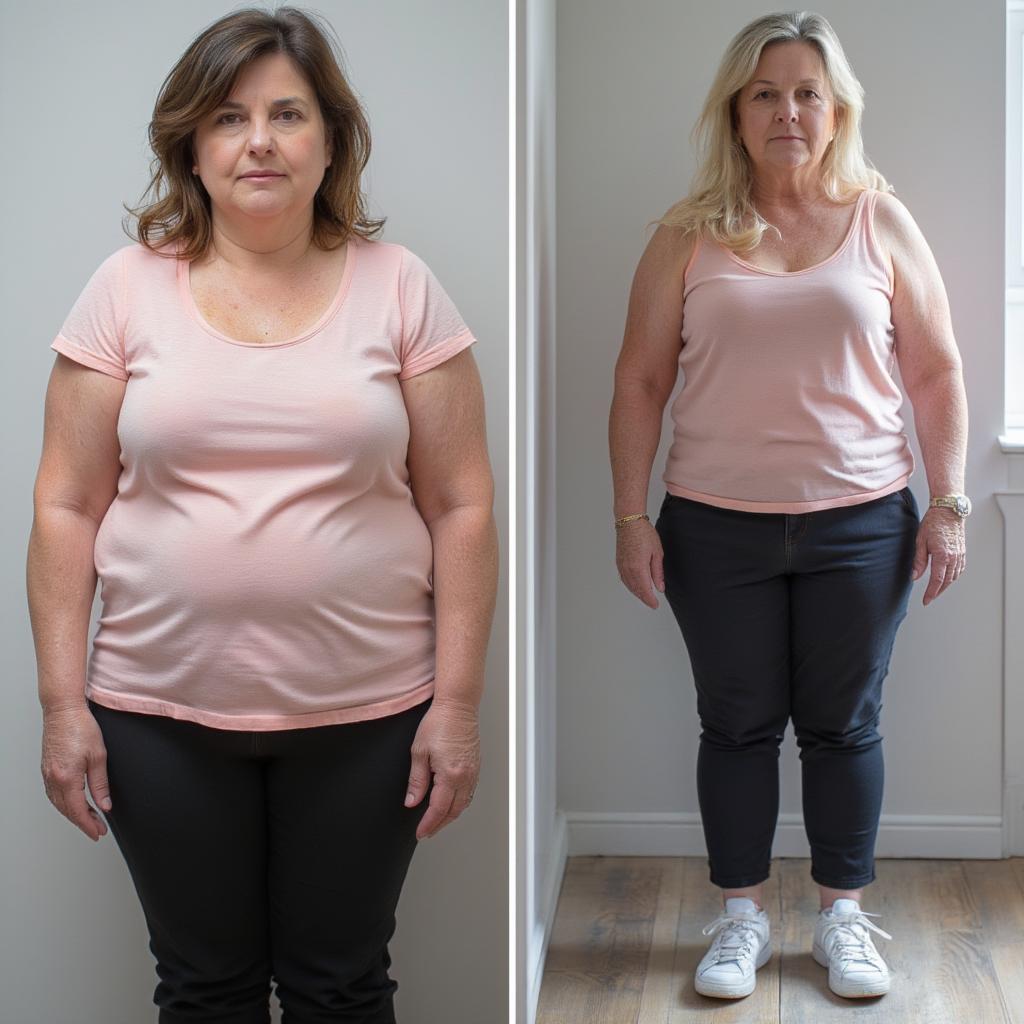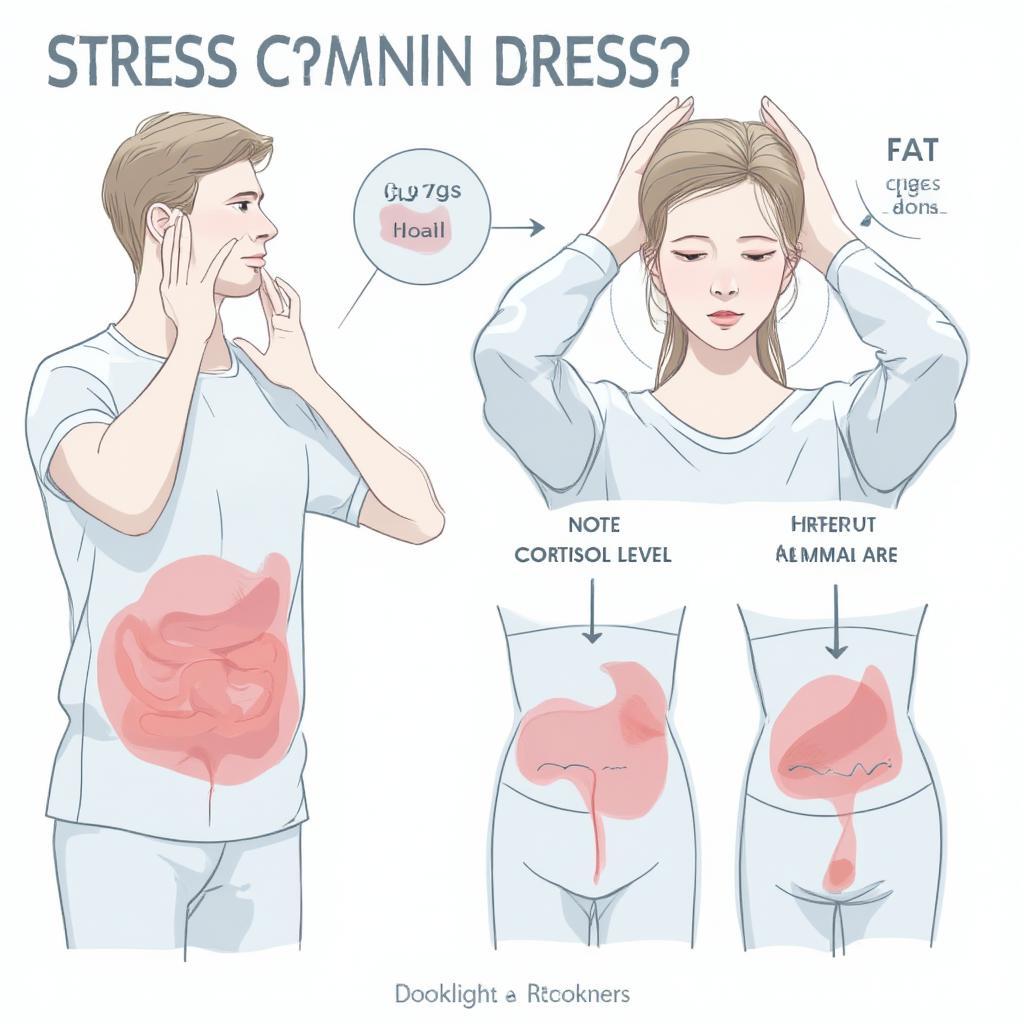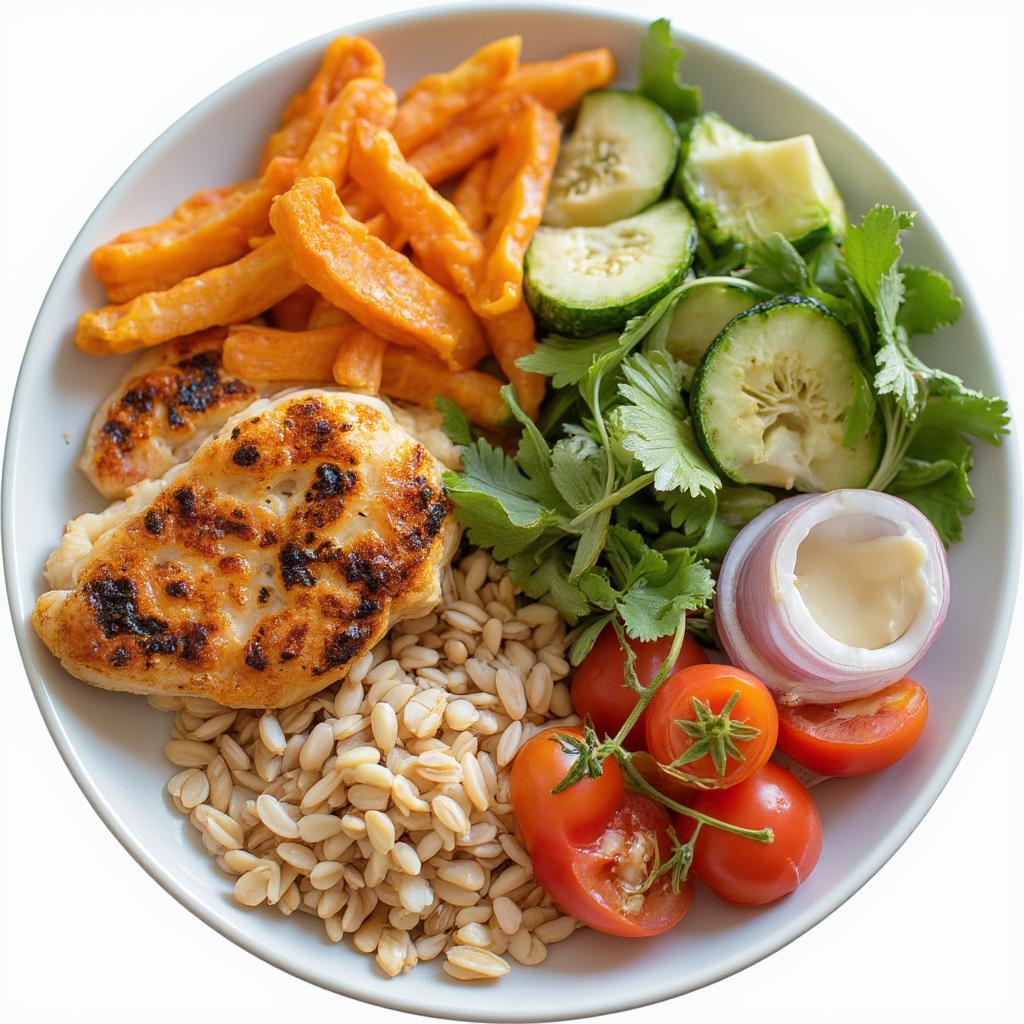How Can I Lose My Weight Without Exercise Effective Strategies

Losing weight without hitting the gym might seem like a dream, but it’s absolutely achievable with the right approach. Forget endless hours of grueling workouts; let’s explore practical, sustainable ways to shed those extra pounds by focusing on what you eat and how you live. You might be surprised how much you can accomplish without breaking a sweat.
Understanding Weight Loss Beyond Exercise
Many assume that exercise is the key to weight loss, but the truth is, diet plays a much more significant role. Think of it this way: you can’t outrun a bad diet. While physical activity is undoubtedly beneficial for overall health, it’s possible to lose weight effectively by managing your calorie intake and making smart food choices. The primary principle of weight loss is that you need to burn more calories than you consume. We’ll explore how you can achieve this without relying solely on exercise.
Calorie Deficit: The Foundation of Weight Loss
Creating a calorie deficit is essential for weight loss, regardless of whether you exercise or not. This means consuming fewer calories than your body burns daily. While exercise contributes to burning calories, you can achieve a calorie deficit primarily through dietary changes. Calculating your daily caloric needs and adjusting your intake can lead to significant weight loss even without extra physical exertion. Understanding this principle is key to making effective food choices.
The Power of Mindful Eating
Mindful eating isn’t just a trend; it’s a powerful tool. It involves paying attention to your body’s hunger and fullness cues, eating slowly, and savoring each bite. This practice can prevent overeating, helping you naturally consume fewer calories. Instead of eating in front of the TV or while working, try to sit at a table, focusing on your meal, and experiencing the flavors and textures of your food. This simple change can make a big difference.
Dietary Strategies for Weight Loss Without Exercise
Now that we understand the importance of calorie control, let’s explore specific dietary changes you can make. It’s about making smart choices, not restrictive rules.
Focus on Whole, Unprocessed Foods
Whole foods, such as fruits, vegetables, lean proteins, and whole grains, are naturally lower in calories and higher in nutrients. These foods fill you up more effectively, which helps to prevent overeating. They also come loaded with vitamins and minerals that are essential for overall health. Think of colorful fruits and veggies, and swap white bread for whole wheat. These small changes can have a big impact.
Increase Your Protein Intake
Protein is your ally in weight loss. It helps you feel fuller for longer, and it helps maintain muscle mass even when you are reducing your calories. Including protein-rich foods, such as lean meats, fish, beans, and lentils, at each meal can be very effective in controlling your appetite and cravings. If you’re struggling to meet your daily protein goals, consider adding in protein shakes or smoothies to complement your meals.
“From my experience, focusing on high-quality protein is a game-changer for weight loss, particularly when you’re not relying on exercise. It keeps you satiated and helps retain muscle,” says Dr. Amelia Chen, a Registered Dietitian.
The Importance of Fiber
Fiber, abundant in fruits, vegetables, and whole grains, is another weight loss champion. Like protein, fiber increases feelings of fullness, promoting a sense of satisfaction that prevents excessive snacking. It also slows down digestion, helping to regulate blood sugar levels and preventing those mid-day energy crashes. High fiber food choices are key for sustaining your energy throughout the day.
Smart Portion Control
Even healthy foods can lead to weight gain if you eat too much. Pay close attention to serving sizes, and use smaller plates to help control portions. This simple yet very effective practice can help prevent overeating without feeling deprived. Be mindful of how much you’re scooping out for each meal, and practice moderation.
The Role of Hydration
Sometimes thirst is mistaken for hunger. Drinking plenty of water throughout the day helps you feel full and can prevent you from snacking unnecessarily. Keep a water bottle handy and sip on it regularly. Water also plays a critical role in the body’s metabolism. You should aim for at least eight glasses of water daily.
Lifestyle Adjustments to Support Weight Loss
Beyond food, there are other lifestyle modifications that can significantly aid your weight loss journey.
Prioritize Sleep
Lack of sleep can disrupt hormones related to hunger and satiety, leading to increased cravings and overeating. Aim for 7-8 hours of quality sleep each night to support your weight loss efforts and overall health. A regular sleep pattern will help to regulate your metabolism and reduce the desire to consume high-calorie comfort foods.
Stress Management
Stress can lead to emotional eating, often resulting in consumption of high-calorie, unhealthy foods. Practicing stress-reducing activities such as yoga, meditation, or simply spending time in nature can help to manage your emotional eating habits. Take time each day to unwind and relax, allowing your body to stay in balance.
Reduce Sugary Drinks and Processed Foods
Sugary drinks, such as sodas, juices, and sweetened coffees, contribute empty calories that don’t provide any nutritional benefit, leading to weight gain. Processed foods are often loaded with hidden sugars, unhealthy fats, and excessive sodium. Eliminating or significantly reducing these items can drastically decrease your overall calorie intake and improve your health.
Strategic Snacking
Snacking, when done right, can be your friend. Instead of reaching for chips or sweets, opt for nutrient-dense snacks like nuts, seeds, fruits, or vegetables. These healthier options help you stay full between meals and prevent overeating during mealtime. It is crucial to plan your snacks to avoid impulsive unhealthy choices.
“It’s not about denying yourself completely; it’s about making informed choices. Small adjustments to your daily habits can add up to significant weight loss over time,” explains David Lee, a certified Health Coach.
Track Your Food Intake
Keeping a food journal or using a food tracking app can provide invaluable insights into your eating habits. It helps you identify areas where you may be consuming excessive calories and make necessary adjustments. This awareness is a powerful step towards mindful eating and overall weight management.
women-tracking-calories-using-smartphone-app
Incorporating Natural Movement Into Your Routine
While we’re focusing on weight loss without structured exercise, integrating more natural movement into your day can provide a boost to your calorie expenditure without feeling like a formal workout.
Increase Daily Steps
Simply walking more can make a difference. Take the stairs instead of the elevator, walk during your breaks, or park farther from your destination. Small, consistent increases in your daily movement can help you burn more calories. Aiming for at least 7,000-10,000 steps per day can contribute to weight loss without strenuous activity.
Incorporate Household Chores
Household chores, such as gardening, cleaning, or vacuuming, are also ways to burn calories without setting foot in the gym. These small movements add up over time. Instead of seeing them as chores, view them as opportunities to boost your daily physical activity.
Stand More Often
If you have a desk job, consider investing in a standing desk or taking frequent breaks to stand and stretch. Standing burns more calories than sitting, and it helps to counteract the negative effects of prolonged periods of inactivity. These small changes can benefit not only your weight loss but also your overall health.
How To Maintain Your Weight Loss Results
Losing weight is one thing; maintaining it is another challenge. Here are a few simple tips to ensure you don’t regain the weight you worked so hard to lose:
Maintain Healthy Habits
Continue to focus on whole, unprocessed foods, control your portion sizes, and manage stress. Consistency is key to long-term weight management. The changes you make should be sustainable and become part of your lifestyle.
Regular Monitoring
Continue to track your food intake and weigh yourself occasionally to stay on top of your progress. This helps you quickly identify if you’re slipping back into old habits. The awareness allows you to readjust your diet and lifestyle as needed.
Seek Support
Connect with friends, family, or support groups to stay accountable and motivated. Having a support system can help you stay on track and overcome challenges. A social support network can also share experiences and help you avoid feeling isolated in your weight loss journey. You can learn more about how to lose body fat percentage in a week if you want to boost your motivation.

Conclusion: Your Journey to a Healthier You
Losing weight without exercise is not just possible, it’s a realistic goal. By focusing on dietary changes, adopting mindful eating, and implementing small lifestyle adjustments, you can effectively lose weight and maintain it in the long term. It’s about making sustainable, healthy choices that become part of your daily life. Remember that consistency and patience are key. This journey is not a sprint but a marathon, so be kind to yourself and celebrate your achievements along the way. If you want to know more about how to get rid of tummy fat, make sure to check out our other resources.
Frequently Asked Questions
-
How can I lose weight without exercise? You can achieve weight loss without exercise by focusing on creating a calorie deficit through dietary changes, practicing mindful eating, and making smart lifestyle adjustments. This includes prioritizing whole foods, increasing protein intake, eating more fiber, practicing portion control, and managing stress.
-
Is it possible to lose belly fat without exercise? Yes, it is possible to lose belly fat without exercise by making strategic dietary changes that lead to overall weight loss. Focusing on high protein, high fiber foods and controlling portion sizes can help reduce overall fat, including abdominal fat. You may find it interesting to learn more about best way to lose tummy fat.
-
What are the most effective dietary strategies for weight loss without exercise? The most effective strategies include focusing on whole, unprocessed foods, increasing protein intake, eating more fiber-rich foods, practicing portion control, staying hydrated, and reducing sugary drinks and processed foods.
-
How important is sleep for weight loss without exercise? Getting enough sleep (7-8 hours per night) is crucial because lack of sleep can disrupt hormones related to hunger and satiety, leading to increased cravings and overeating. Adequate sleep can help regulate these hormones and contribute to successful weight management.
-
Can I still eat carbs if I want to lose weight without exercise? Yes, you can still eat carbs, but it’s important to focus on complex carbohydrates like whole grains, fruits, and vegetables, which are rich in fiber and nutrients. Avoid refined carbs like white bread and sugary drinks, which provide empty calories and lead to weight gain.
-
How long does it take to see results if I’m losing weight without exercise? The time it takes to see results varies from person to person. However, by consistently implementing the strategies discussed, you should begin to see noticeable changes in a few weeks. Remember that weight loss is a gradual process, and it’s important to be patient and persistent.
-
What is mindful eating, and how does it help with weight loss? Mindful eating is the practice of paying attention to your body’s hunger and fullness cues, eating slowly, and savoring each bite. This practice can help you avoid overeating and naturally consume fewer calories, leading to effective weight loss.
-
Are there any supplements that can help me lose weight without exercise? While some supplements claim to aid weight loss, it’s crucial to consult with a healthcare professional before using them. Focus on making healthy lifestyle choices through diet and movement, as those habits are more likely to be effective and sustainable in the long run. You may also find how to burn belly fat fast without exercise interesting.
-
How can I manage cravings without exercise? You can manage cravings by eating regular meals, consuming sufficient protein and fiber, drinking plenty of water, and identifying emotional triggers that may lead to food cravings. Engage in stress-reducing activities and explore healthier snack options.




